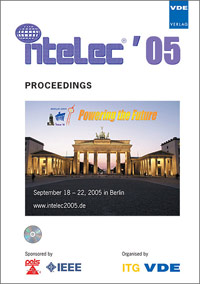On the Way to a Sustainable Energy Future
Konferenz: Intelec '05 - Telecommunications Conference - 27th International Telecommunication Energy Conference
18.09.2005 - 22.09.2005 in Berlin, Germany
Tagungsband: Intelec '05 - Telecommunications Conference
Seiten: 10Sprache: EnglischTyp: PDF
Persönliche VDE-Mitglieder erhalten auf diesen Artikel 10% Rabatt
Autoren:
Bossel, Ulf (European Fuel Cell Forum, Morgenacherstrasse 2F, 5452 Oberrohrdorf, Switzerland)
Inhalt:
The establishment of a sustainable energy future is one of the most pressing tasks of mankind. With the exhaustion of fossil resources the energy economy will change from a chemical to an electrical base. This transition is one of physics, not one of politics. However, proven technology and existing engineering experience come in useful. Actions must be taken soon to start a transition process which will take many years to complete. Unfortunately, politics seems to listen to the advice of visionaries, lobby groups and environmental activists, all presenting qualitative arguments, hardly ever based on facts and physics. A secure sustainable energy future cannot be founded on shaky arguments, hype and activism, but has to be built on solid grounds of established science and engineering. This article is in part a response to false claims of hydrogen promoters. Although most qualitative claims are correct, in total they do not properly consider some fundamental laws of physics, in particular, the energy conservation principle. Hydrogen is not a new energy, but only an artificial synthetic energy carrier. It has to be made from high grade energy like electricity or natural gas. Before the technology of a hydrogen economy is developed or implemented, some fundamental question needs to be addressed. Where does the energy come from to be delivered to the consumer in the form of hydrogen? How much energy is lost in the hydrogen distribution system? Are there other ways to bring the energy to the people? How much of the original energy is needed to satisfy the energy needs of society? These questions have been studied in detail. This publication builds on the results of this energy analysis of a hydrogen economy. It translates the results into a wider perspective and draws conclusions that are devastating for a hydrogen economy. A hydrogen economy will never make sense.


